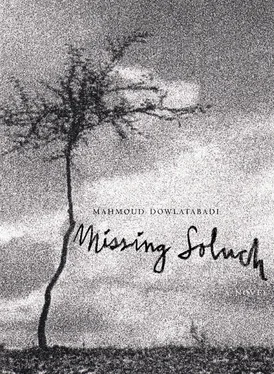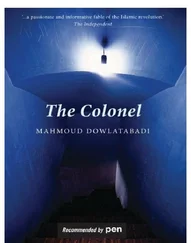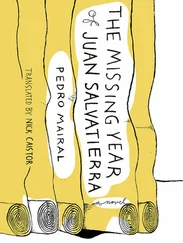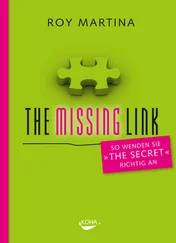“So, you say you’ve come to see how your old friend here is doing, eh?”
Karbalai Doshanbeh’s question gave light to a suspicious presumption, which did not escape the Sardar’s notice. It was the kind of suspicion that the person who says it is aware of, and the person who hears it is aware of as well. Old opponents understand each other’s speech. This understanding between the Sardar and Karabalai Doshanbeh was not recent; they had known each other well for some thirty years. When the Sardar was young, Karbalai Doshanbeh was already a man. They would lead their camels together in caravans. Head to tail, they would comprise a single team. During their travels, they would rarely be apart. The Sardar was the front leader of the caravan and Karbalai Doshanbeh would be responsible for overseeing the entire team. But it would be wrong to think that their familiarity with each other was a kind of friendship. This was because Karbalai Doshanbeh was rarely a friend to anyone. The sense of companionship he shared with some people was simply borne out of need. These were needs that arose from having to cross a dangerous pass in the deepest winter snow, or in having to cross the desert in the summer heat. For him, companionship was simply a solution to the problem of being alone, either to face the threat of wolves in the winter or to find protection from jackals in the summer. Everyone knew this. But you can’t kill someone for being self-preserving. Goats have hair, and sheep have wool.
“Will you smoke a pipe, Karbalai?”
“Um … yes … I’ll smoke.”
The Sardar offered his pipe to Karbalai Doshanbeh.
“You’ll suck it up even if they were giving it away for free! Ha ha! You’ve been smoking pipes for a hundred years, but I’ve never once seen you take out a bag of your own tobacco from your sack.”
Karbalai Doshanbeh exhaled the smoke from the pipe and said, “A hundred years? More like a hundred and twenty years! Just go and bring my death shroud, won’t you? Do you think you’re a spring chicken yourself? Don’t judge by your beard, just because it’s still jet-black! How old do you make yourself to be, anyway?”
“How old do you think I should be?”
“You tell me.”
“Fifty. At most, I’m fifty.”
“No. Start at twenty! You’re still innocent and haven’t seen the world, eh?”
“So you think I’m older than fifty?”
“I told you: you’re twenty!”
“If I’m older than fifty, why don’t I have a single white hair?”
“What does white or black hair have to do with anything? A goat’s hair is black! Is that an argument? White hair runs in the family.”
“So your beard went white while you were still a young man?”
“Ahmmm …”
Karbalai Doshanbeh wrapped his lips around the pipe, and the Sardar looked at Mergan with a gleeful smile.
“You don’t want to bring us a cup of tea and a date?”
Mergan was still holding the handkerchief full of dates. She didn’t know what to do with them.
“Put them somewhere by the cabinet. Just put them over there. They’re delicious dates.”
Mergan put the handkerchief by the cabinet. Then she looked at Abrau, who looked away from her. Mergan went to put the kettle on the stove.
“Hey, Abrau! Where are you, boy?”
Salar Abdullah’s voice rang in the alley. Abrau ran out. He couldn’t bear the thought of Salar Abdullah coming inside and filling the room with his huge frame as well. He met him and stood chest-to-chest with him, his back against the wall.
“Yes, Salar?”
“Run! Run and bring the ram over to the road! Mirza Hassan is coming. He’s bringing the water pump. Everyone’s gathering at the road. We need to celebrate by killing a ram! Now, go. Run!”
Mergan was standing with one foot inside and one foot outside of the house, listening to what Salar Abdullah was saying. She listened to her son’s footsteps and those of Salar Abdullah until they faded into the distance. Then she returned to the room.
“So, they’ve finally brought it!”
Karbalai Doshanbeh was speaking to himself.
Megan sat beside the stove.
The Sardar asked, “What does this new group want to do with their water pump, Karbalai?”
As always, Karbalai Doshanbeh waited a few moments before offering a few words.
“No doubt they want to draw water up from the earth! Ha ha!”
“But from dry earth?”
“What do I know?”
“But if our land had water, it wouldn’t be dry. If it had water, our canals wouldn’t be drying out every day.”
Karbalai Doshanbeh saw that the Sardar and he shared the same view in this matter.
“They say the water in the canals is so low there’s no point in re-dredging them.”
“Well, let them dredge them again, if they want!”
Karbalai Doshanbeh began to laugh silently.
“What? Dredge them? Who’ll take charge of that? You have an active imagination! This group can’t manage to drink a glass of water without someone telling them what to do. They can’t get anything done without the threat of the stick! When there used to be one or two real leaders in this village, the landowners used to collect money to have the canals dredged. Soluch himself, God rest his soul, used to make a month’s living every year from dredging them. But now that our former leaders have gone to live among strangers in town, they don’t bother with the canal waters any more. So this is now in the hands of the petty landowners. They’ve spent all their money for the land and irrigation on buying and selling. So the canals have fallen into the hands of this group of new lords! And they each think they should be in charge, since none of them trusts the others. Each of them considers the promises of the others as worthless. They each say, ‘What do I care? I only have a foot of water myself. Why don’t the others do anything about it? What’s it to me?’ The other issue is that the value of grain has fallen. That’s the most important reason, actually. They have to sell their wheat for less than three tomans per unit. It’s not worth it to the petty landowners to farm more than what they’ll use themselves. So now everyone who has some land and a bit of water only plants enough for his own use. During the harvest, how much pay can you set aside to hire gleaners? And those who don’t have land have to buy their wheat from the market. So, they need to get money from somewhere. Where will the landless in Zaminej make money these days? From the small landowners? The small landowners are already in a tight spot. That’s why Zaminej is falling apart now. The young men are leaving to sell their labor elsewhere. Many may not return. That’s why the canal’s been forgotten. Everyone’s forgotten about the canal. And the canal’s like a person, or, if you like, a camel or a sheep. If you don’t care for it, if you don’t feed it, when you don’t care for it when it gets sick, it falls from its feet. It becomes ill. It gets worse day by day. Its throat tightens; that’s the water level dropping … and it will get still worse than it is now! You’ve not seen anything yet! Mirza Hassan will show up and hire a few simpletons to help dig the well for this pump. But what will be the end of all of this? I don’t see any good coming from it. And I say this while my own son is a partner in this plan!”
The Sardar asked, “So is the pump supposed to do the work of the canals, then? Will I still be able to get water for my camels, or will I eventually have to pay for it?”
“It’s all new for me, so I don’t know!”
“The pump, as you say, is owned collectively, no?”
“Yes, like the canal itself. There are two or three primary owners, and the rest have allotments allowing them to use the water for an hour or two at a time.”
Читать дальше












